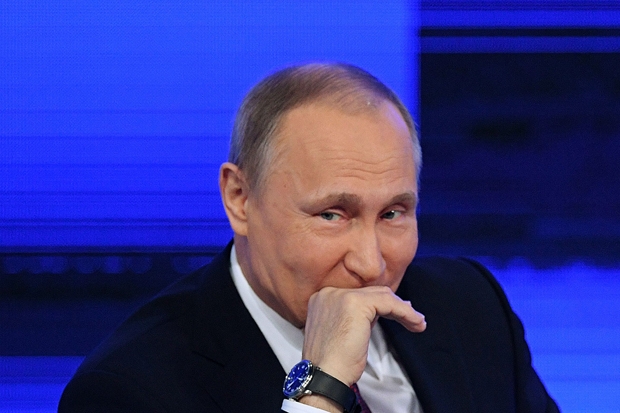Most of my predictions for 2016 were wrong; so let’s not revisit them. But I was right, in January, to identify as a theme of the coming year an evident gulf between ‘the reinvigorated and the demoralised’. In small business sectors and provincial towns, as well as in the attitudes of millions of citizen voters here and abroad, the divergence between optimism and disgruntlement grew as the year went on. And when it came to elections and referendums, it was the downbeat that prevailed. So here we are, fearful of the craziness of Trump, the disintegration of Italy, the triumph of Marine Le Pen and the non-resolution of the Brexit muddle. My top prediction for 2017? We won’t feel any more prosperous at the end of the year than we do at the beginning. But let me not depress you too much: here’s a cheerful round-up of the past 12 months.
Deals of the year
If there was a theme for mergers and acquisitions, it was the passing of British know-how into foreign hands — and I include the proposed ‘merger of equals’ between the London Stock Exchange and Deutsche Börse, which I described as a bid ‘to hoover as much business as possible from London to Frankfurt’. The sale of microchip designer Arm Holdings to Softbank of Japan and travel search site Skyscanner to Ctrip of China were more obvious examples. It’s a worrying trend, exacerbated by the devalued pound. But I was happy to celebrate the £300 million sale of Tyrrells Potato Crisps to a Texan popcorn maker: a remarkable end to a story that began 15 years ago with Herefordshire farmer Will Chase trying to find a use for his surplus potatoes.
The departed
At this season I review the year’s obituaries, in the hope of spotting patterns. Among those knocking at the Pearly Gates in 2016 were a trio of Americans who, for better or worse, helped make the modern era. John Gutfreund was a Wall Street titan who turned Salomon Brothers from a partnership to a public company — creating a model for the evolution, on both sides of the pond, of human-scale firms where traders risked their own capital into ill-managed, shareholder-owned giants which gambled with other people’s money. Hungarian-born Andy Grove was the guru of Intel, the Californian microprocessor maker which stayed at the forefront of digital advances decade after decade through innovation driven by ‘constructive confrontation’. And Tom Perkins was a Silicon Valley venture capitalist who backed every internet star from Amazon to Uber. He also captured the spirit of the Trump era when he proposed: ‘You don’t get to vote unless you pay a dollar in taxes, and how’s this… you pay a million in taxes, you get a million votes.’
Best books
The best biography of 2016 was The Man Who Knew by Sebastian Mallaby: a quietly admiring account of the career of former US Federal Reserve chairman Alan Greenspan, the wily fox who held long sway over financial markets but had the courage — after the 2008 crisis, for which history will make him share the blame — to admit he had ‘found a flaw’ in the model of benign free-market capitalism he had believed in all his life.
Many others have written about that flaw and its potential remedies: a thoughtful contribution this year was The End of Alchemy, by former Bank of England governor Mervyn King, proposing a fundamental rethink of bank capital rules to avert future crises. King also wins my prize for the year’s sharpest put-down — of his over-hyped successor Mark Carney. Without actually mentioning the former governor of the Bank of Canada, King reminds us that ‘Canada has a small number of banks and is not an international finance centre’, which explains its ‘comparatively good performance… during the recent crisis’.
As to fiction, the best novel with an economic angle I read in 2016 is a short French one in translation: The Reader on the 6.27 by Jean-Paul Didierlaurent. This says nothing about banks or governors, but a lot about the dignity of work — so easily forgotten these days — for the humble machine operator in a paper mill and the lavatory attendant in a shopping mall. In that context, honourable mention too for From Bags to Blenders, a jaunty little memoir in the bullet-point style of a memo from the chairman’s desk by Gordon Black, whose family business prospered as a footwear manufacturer for Marks & Spencer in the era when the high-street chain nurtured suppliers, took care of staff, pleased customers and made its founding dynasty rich without stirring resentment. That really was a benign model of capitalism: what a shame it has gone completely out of fashion.
Best gossip
In Houston, an oil man pointed across the room towards a Big Oil man and whispered in my ear, ‘Have you met Bill? Bill once delivered $20 million for a Russian oil concession to Vladimir Putin at his house in Paris, in cash.’ ‘Whose house in Paris?’ I asked, confused. ‘Putin’s. Didn’t you know, that’s where he really lives? He commutes to Moscow by private jet a couple of times a week. But it didn’t go well. Bill told Vladimir he was an asshole for asking too much money, and Vladimir told Bill he was barred from Russia for life.’ I didn’t believe a word of it, of course; neither should you — and Bill’s not his real name. But howzat for gossip?
Best answer
So far, the best answer from Leave-leaning readers to my party-game question ‘If Brexit was a film…?’ is The Shawshank Redemption — because the wrongly imprisoned hero has to crawl through sewers to freedom, and the corrupt prison warden (played by Bob Gunton) is the spitting image of Jean-Claude Juncker. Come on, Remoaners, I’m sure you can better that: suggestions welcome, to martin@spectator.co.uk.






Comments